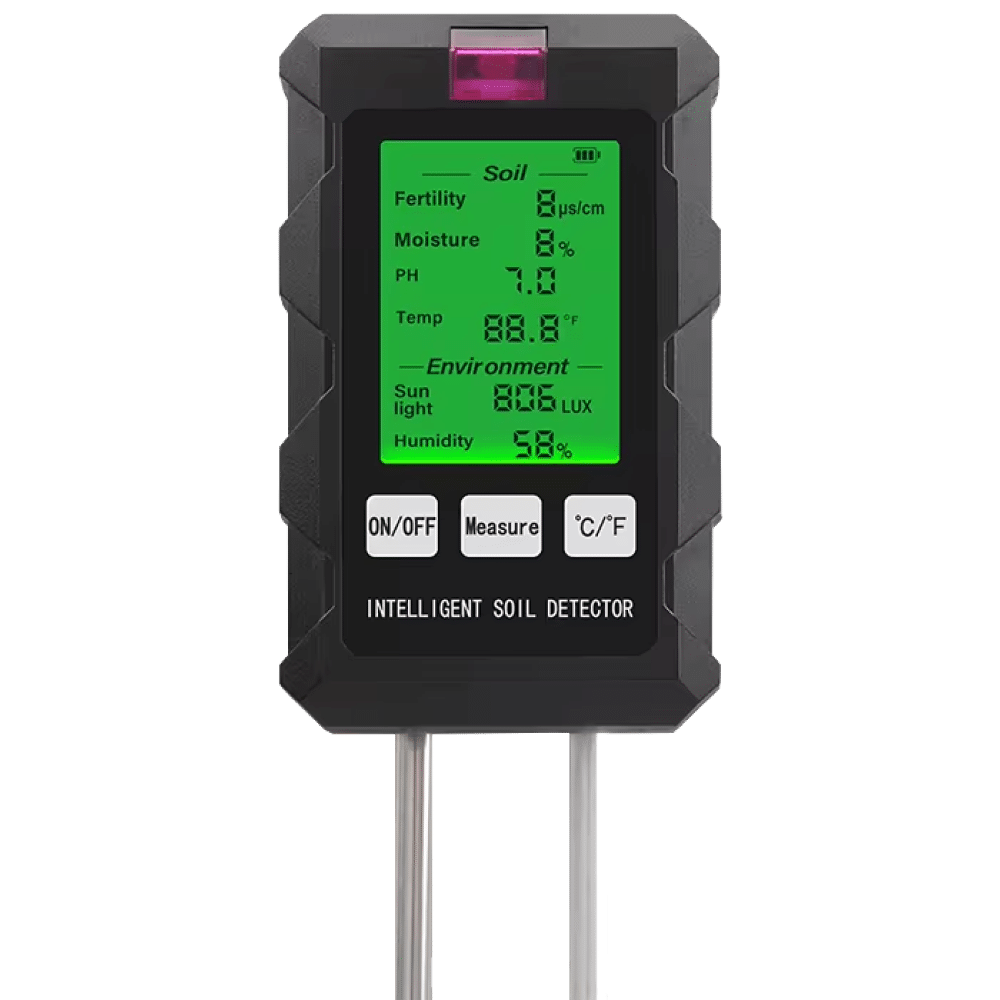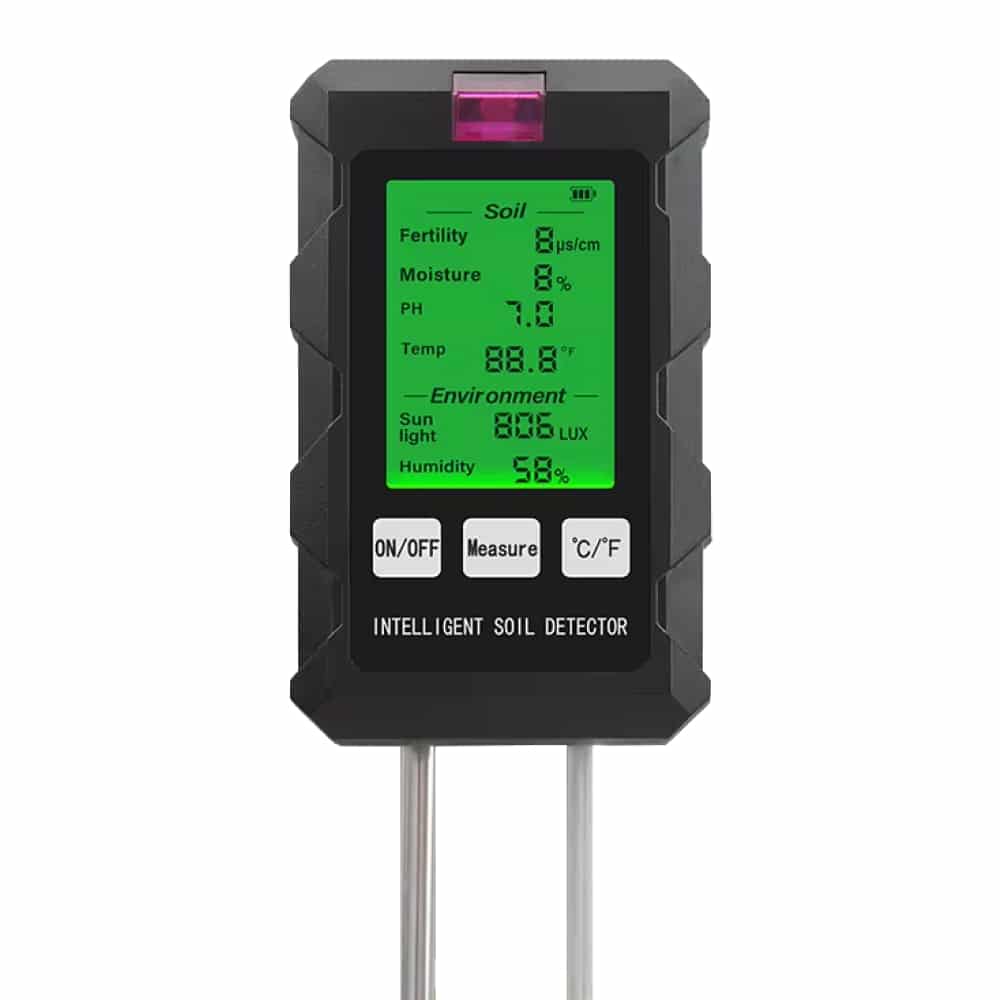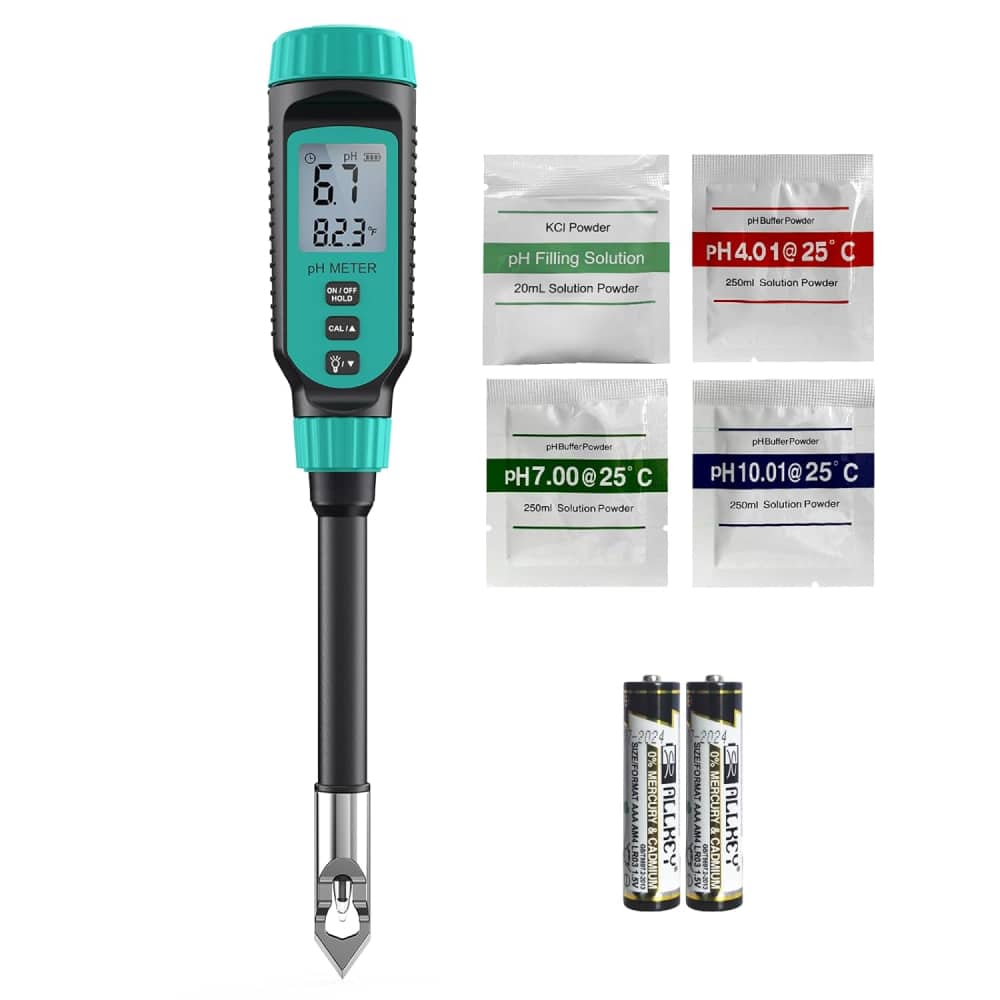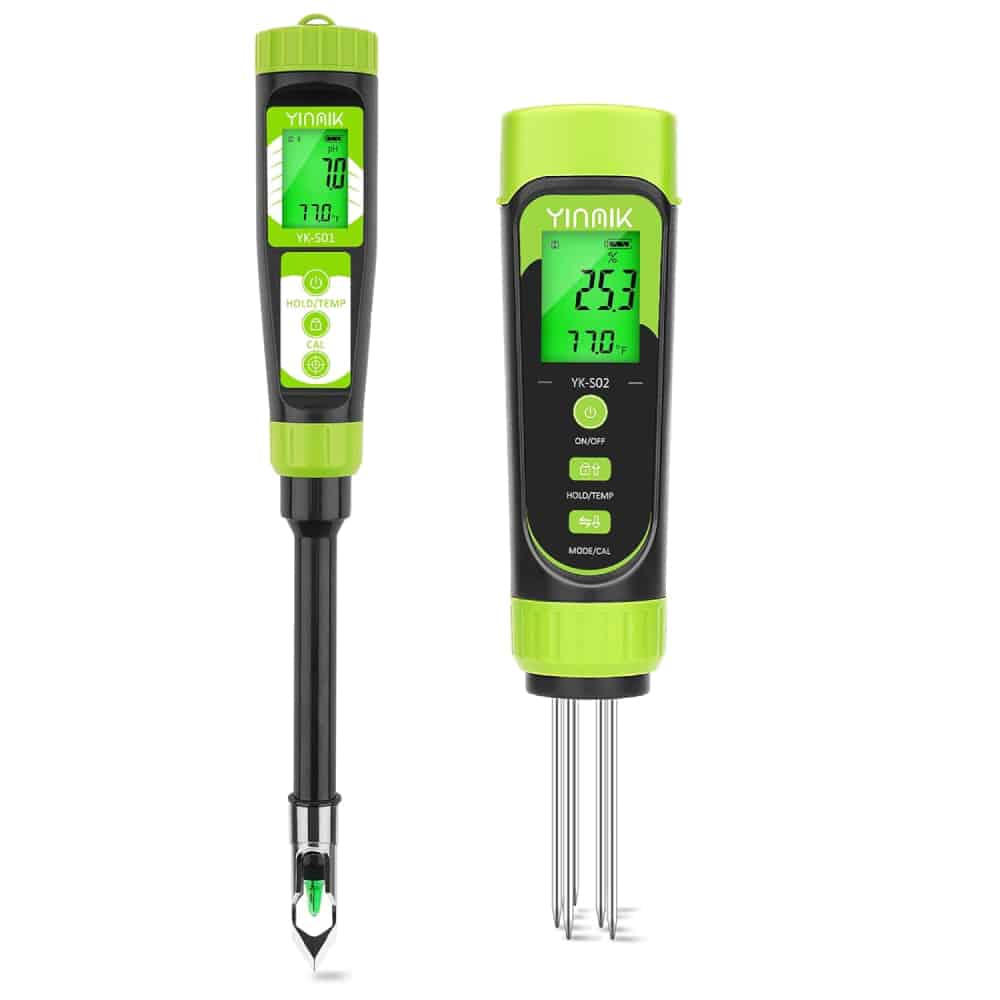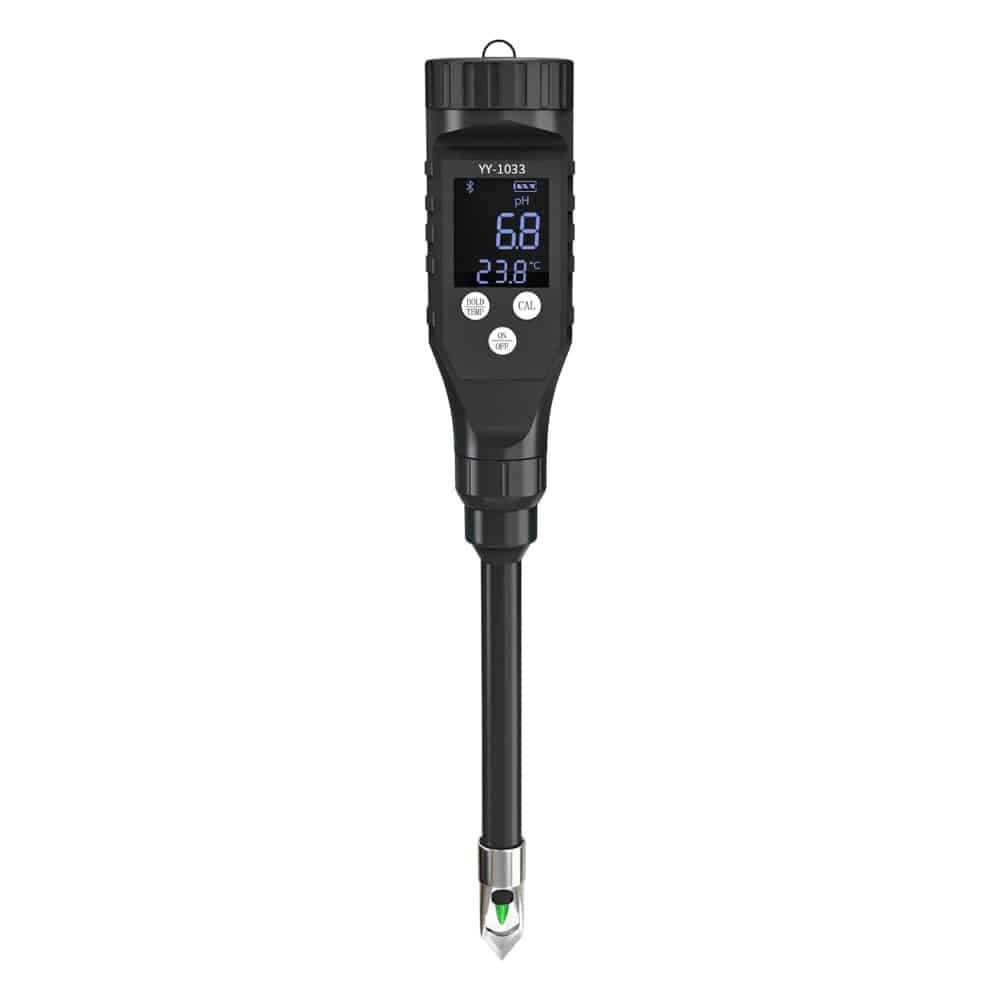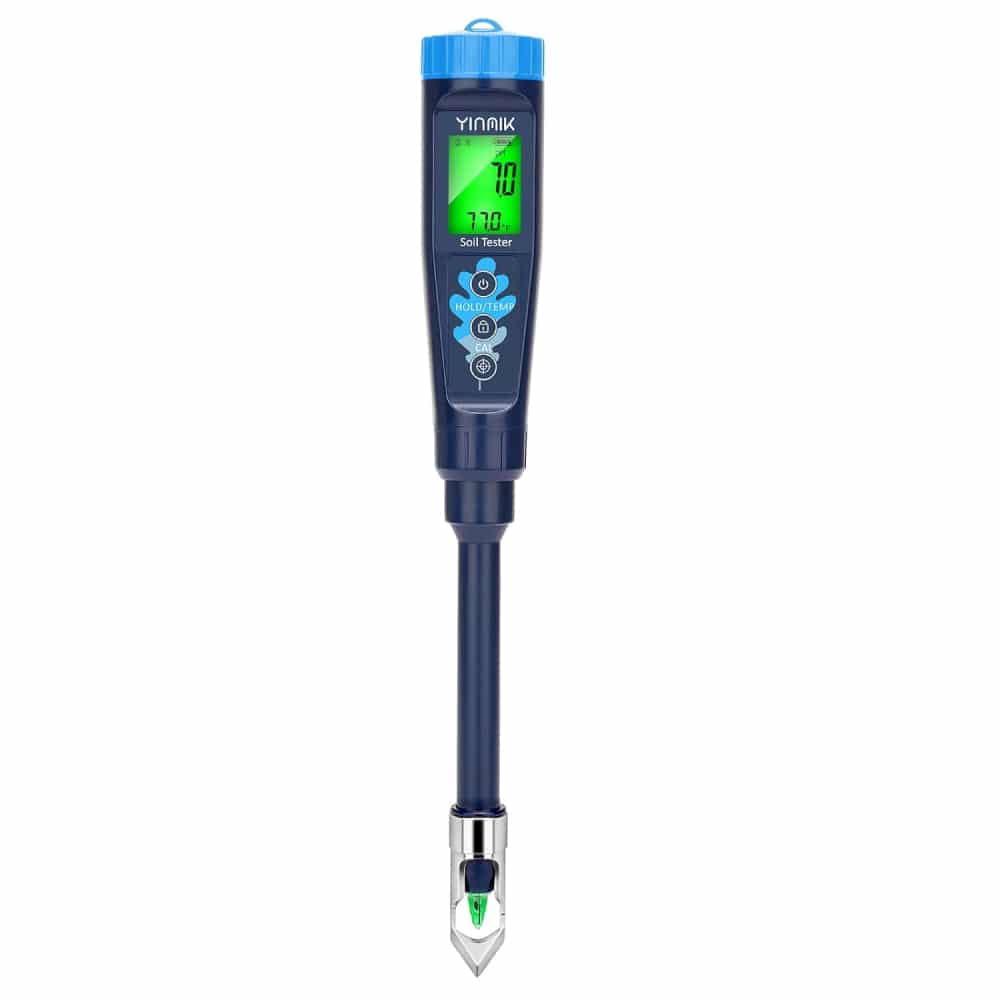Best 5 Soil Testers of 2025: Perfect Your Garden with Precision Testing

By Nathan Ford – Research Specialist
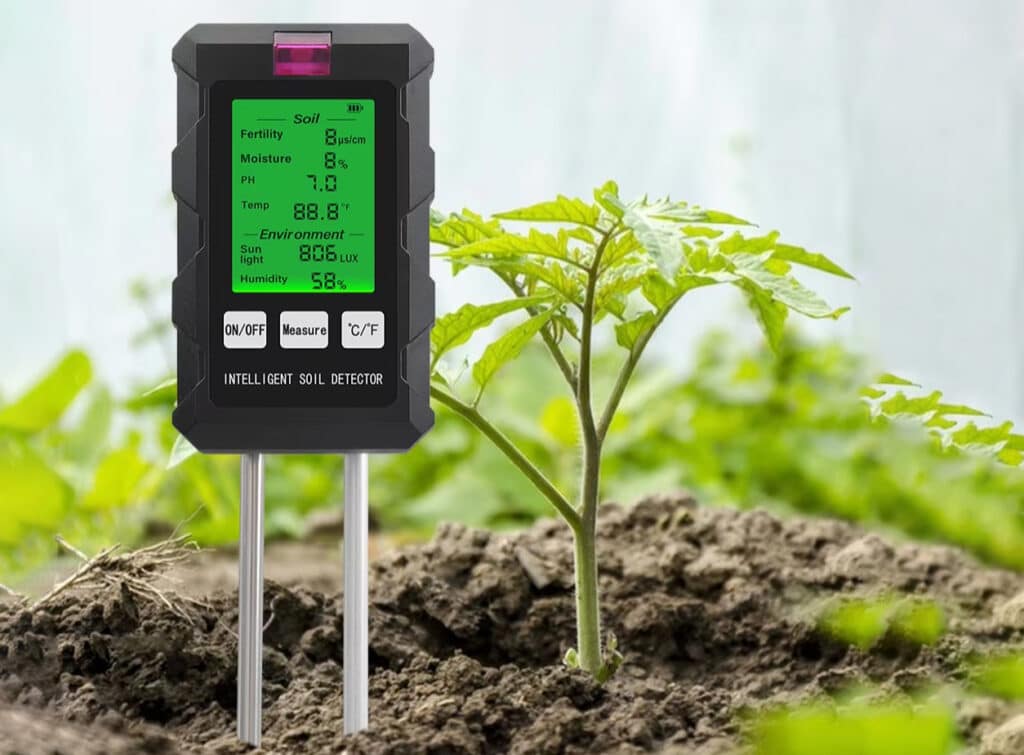
Have you ever spent hours nurturing plants only to watch them wilt despite your best efforts? 😫 I’ve been there—pouring time and money into my garden only to face disappointment because I couldn’t decode what my plants truly needed. Selecting the right soil tester can be overwhelming with countless options flooding the market, each claiming superior accuracy.
The struggle to find reliable soil testing equipment is real. From misleading readings to confusing interfaces, many gardeners end up making costly mistakes based on inaccurate data. My own tomato crop failed last season because my outdated tester couldn’t properly measure soil acidity—a terrifying waste of an entire growing season.
In this guide, I’ll share the best 5 soil testers that actually deliver on their promises. These aren’t just random picks; they’re tools that have transformed my gardening experience from guesswork to science-backed success. 🌱
You’ll discover devices that provide instant, accurate readings for multiple soil metrics—from pH and moisture to fertility and temperature. No more plant casualties due to incorrect soil conditions or wasted money on amendments your soil doesn’t need.
Ready to revolutionize your gardening results? Let’s explore the evaluation criteria that separate the exceptional testers from the mediocre ones.
Our Evaluation Standards
Measurement Accuracy
Precision of readings within 0.1 pH units and correct moisture detection verified through comparison testing with laboratory standards.
Functionality Range
Number of soil parameters measured (pH, moisture, fertility, temperature, light) and versatility across different soil types and growing media.
Ease of Use
Intuitive interface with clear digital displays, simple calibration process, and straightforward data interpretation for gardeners of all experience levels.
Durability & Build Quality
Quality of construction materials, probe sensitivity, battery life, and resistance to outdoor elements for season after season reliability.
Rating
9.7 / 10
GENERAL VIEW
The Rootabest Soil Tester has revolutionized home gardening by bringing laboratory-grade soil analysis directly to consumers. This standout device dominates the market with unmatched versatility and precision that commercial growers and home gardeners alike have come to rely on. 🌿
Featuring groundbreaking six-in-one technology, this tester simultaneously measures soil pH, moisture, fertility, temperature, light intensity, and humidity—eliminating the need for multiple devices. The proprietary sensing probes deliver readings within 0.1 pH accuracy, allowing for the kind of precise soil amendments that can transform struggling plants into thriving specimens.
What truly sets the Rootabest apart is its comprehensive plant recommendation system that stores optimal growing conditions for over 450 common garden plants. This means you’re not just getting raw data—you’re receiving actionable insights tailored to your specific plants’ needs.
The large digital LED display presents information with exceptional clarity, making it accessible even for gardeners with vision impairments or when working in low-light conditions. Real-time data updates ensure you’re always making decisions based on current soil conditions.
Battery life extends to an impressive 320 hours of continuous use, meaning most gardeners can go an entire season without replacement. The ergonomic design features a comfortable grip and intuitive button layout that makes operation simple even with gloved hands.
Professional growers report yield increases of up to 26% after implementing the Rootabest’s recommendations, while home gardeners appreciate the elimination of guesswork from their plant care routines. The data logging capability stores up to 50 readings for comparison, helping users track soil improvement over time.
The portable design and protective carry case make the Rootabest perfect for use across multiple garden beds, containers, or even when shopping for plants to ensure soil compatibility before purchase.
Pros
- Comprehensive six-in-one testing capabilities
- Plant-specific recommendations for 450+ species
- Exceptional accuracy within 0.1 pH units
- Clear digital display visible in all conditions
- Long-lasting battery life for full-season use
- Durable construction with weatherproof housing
- Data logging for tracking soil improvements
- Portable design with protective storage case
- Intuitive interface requiring minimal learning curve
- Automatic calibration maintaining long-term accuracy
Cons
- Occasionally out of stock due to high demand
WRAP-UP
The Rootabest Soil Tester earns its top spot by transforming the complex science of soil analysis into accessible information any gardener can use. With its unmatched combination of accuracy, versatility, and user-friendly design, it delivers professional-grade results at a reasonable price point. Act quickly when available—limited production runs mean this game-changing tool sells out regularly. DISCOVER NOW!
PICK #2
Rating
8.8 / 10
GENERAL VIEW
The Tadeto Soil Tester establishes itself as a premium pH measurement solution with exceptional versatility across multiple testing environments. What distinguishes this device is its professional-grade accuracy achieved through a unique three-point calibration system that covers the complete spectrum of acidity, neutrality, and alkalinity.
Agricultural professionals and serious home gardeners appreciate the wide application range of this device, which effortlessly transitions from testing garden soil to hydroponic solutions, food products, and even industrial applications. This makes it particularly valuable for users who need reliable pH readings across diverse scenarios.
The backlit LCD screen sets a new standard for visibility, providing clear readings even in poorly lit greenhouse conditions or when working outdoors at dawn or dusk. The real-time temperature display adds valuable context to pH readings, as temperature fluctuations can significantly impact soil chemistry and plant nutrient uptake.
The alloy protective cap innovation represents a significant advancement in probe longevity, addressing the common frustration of electrode damage that plagues many competing models. This thoughtful design element allows users to test more challenging soil types without fear of damaging the sensitive measurement components.
Pros
- Three-point calibration for superior accuracy
- Versatile testing across multiple media types
- Backlit display for low-light conditions
- Durable alloy protective cap extends lifespan
- Real-time temperature monitoring included
- Data hold function for recording readings
- Warning system for extreme pH conditions
- Professional-grade specifications for serious users
- Consistent readings across repeated tests
Cons
- Higher price point than basic models
- Limited to pH testing only
PICK #3
Rating
8.3 / 10
GENERAL VIEW
The YINMIK Soil Tester addresses one of the most common frustrations among gardeners—waiting extended periods for soil readings—by delivering instant measurements that transform the testing experience. This quick-response technology allows for efficient monitoring of multiple garden areas in a single session without the typical delays.
Hydroponic growers particularly benefit from this model’s dual-functionality, which seamlessly transitions between soil and liquid testing with equal accuracy. The tapered stainless-steel dibber attachment ensures electrode protection while facilitating penetration into various soil densities and types.
The innovative FDR (Frequency Domain Reflectometer) moisture detection technology represents a significant advancement over traditional moisture meters. By providing precise moisture percentage readings rather than arbitrary scales, it delivers actionable data that correlates directly to plant hydration needs.
The thoughtfully designed digital interface eliminates interpretation guesswork by displaying clear numerical values rather than the ambiguous dial readings common in older models. This precision enables gardeners to make data-driven decisions about watering schedules and soil amendments.
Pros
- Instant readings eliminate waiting time
- Works in both soil and hydroponic solutions
- FDR technology for scientific moisture measurement
- FDR technology for scientific moisture measurement
- Stainless steel dibber protects electrodes
- Simple one-button operation for quick testing
- Works effectively in all soil types
Cons
- Battery life shorter than some competitors
- Requires occasional recalibration for accuracy
- Limited to two measurement parameters
PICK #4
Rating
7.8 / 10
GENERAL VIEW
The RCYAGO Soil Tester brings digital connectivity to soil testing with its innovative Bluetooth functionality that revolutionizes how gardeners collect and analyze soil data. This smart integration allows users to record, track, and share soil readings via a dedicated mobile application, creating unprecedented opportunities for monitoring trends and patterns. 📱
The automatic temperature compensation technology stands out as a particularly valuable feature for serious growers, as it adjusts pH readings based on current soil temperature to maintain accuracy across varying conditions. This scientific approach eliminates a common source of measurement error in standard pH testers.
Power conservation through the automatic standby mode demonstrates thoughtful engineering, extending battery life while maintaining data collection capability even during inactive periods. This practical feature ensures the device remains ready for use throughout the growing season without frequent battery replacements.
The customizable alert system transforms passive soil monitoring into proactive garden management by notifying users when readings fall outside preset parameters. This early warning capability allows for timely intervention before plant health is compromised by unfavorable soil conditions.
Pros
- Bluetooth connectivity for data tracking
- Automatic temperature compensation for accuracy
- Power-saving standby mode extends battery life
- Customizable alerts for parameter thresholds
- Includes calibration powders for maintenance
- Replaceable electrodes for extended lifespan
- Protective cover prevents damage during storage
Cons
- Requires smartphone for full functionality
- App has occasional connectivity issues
- More complex setup than non-digital models
- Higher price point than basic testers
PICK #5
Rating
7.1 / 10
GENERAL VIEW
The YINMIK Digital pH Tester specializes in providing continuous soil monitoring through its innovative 24-hour tracking technology. This dedication to ongoing measurement rather than spot testing represents a fundamental shift in how gardeners can understand soil pH fluctuations throughout daily temperature and moisture cycles. 🕒
The dual-purpose design effectively bridges the gap between soil and water testing without compromising accuracy in either medium. By simply removing the stainless steel dibber, users can instantly transition to testing irrigation water, rain collection, or hydroponic solutions—making it an exceptionally versatile tool.
The companion mobile application elevates this tester beyond a simple measurement device into a comprehensive pH management system. Real-time data graphs visually represent soil trends, helping users identify patterns and correlations between environmental factors and pH changes over time.
The simplified direct-insertion methodology eliminates the traditional slurry preparation process required by many pH testers, making soil testing more accessible to casual gardeners while maintaining professional-grade accuracy for experienced users. This time-saving approach encourages more frequent monitoring.
Pros
- 24-hour continuous pH monitoring capability
- Mobile app provides visual data tracking
- Tests both soil and liquid accurately
- No slurry preparation required
- Protective stainless steel dibber included
Cons
- Limited to pH measurement only
- App requires regular updates
- Battery drains quickly in monitoring mode
- Calibration process somewhat complicated
- Occasional connectivity interruptions
❓WHAT ARE SOIL TESTERS
Soil testers are diagnostic tools designed to measure various properties of soil that directly impact plant health and growth. These devices analyze crucial soil parameters including pH level (acidity/alkalinity), moisture content, fertility (nutrient levels), temperature, and sometimes light exposure or humidity. Modern soil testers range from simple analog probes with color-changing indicators to sophisticated digital devices with multiple sensors and data-logging capabilities.
The fundamental purpose of these tools is to eliminate guesswork from gardening by providing objective measurements of soil conditions. This data allows gardeners to make informed decisions about amendments, irrigation scheduling, and plant selection based on scientific readings rather than visual assessment alone. For example, knowing that soil pH is 5.2 rather than the neutral 7.0 explains why acid-loving plants like blueberries thrive while vegetables struggle in the same location.
Professional-grade soil testers often include temperature compensation features that adjust readings based on soil temperature, as chemical reactions and nutrient availability change with thermal conditions. More advanced models may connect to smartphones or computers for data tracking over time, allowing gardeners to understand seasonal patterns and the effects of various interventions on soil health.
⭐ Benefits of Soil Testers
- Optimized Plant Health: Accurate soil data enables precise adjustments to create ideal growing conditions for specific plants, resulting in stronger growth, better flowering, and increased fruit production.
- Water Conservation: Moisture readings prevent both under and overwatering by indicating exactly when plants need irrigation, reducing water waste while protecting plants from drought stress or root rot.
- Targeted Fertilization: Fertility measurements identify specific nutrient deficiencies, allowing for precise application of only needed amendments rather than generalized fertilizers that may create imbalances.
- Cost Savings: By preventing plant loss from improper soil conditions and eliminating unnecessary amendments, quality soil testers quickly pay for themselves through reduced replacement costs and wasted products.
- Environmental Protection: Precise soil management reduces fertilizer runoff and chemical leaching into groundwater by ensuring amendments are applied only when and where needed in appropriate quantities.
- Season Extension: Temperature monitoring helps gardeners understand soil warming patterns in spring and cooling in fall, extending growing seasons by timing plantings based on actual soil conditions rather than calendar dates.
- Problem Diagnosis: When plants show distress, soil testers provide immediate data to help identify whether pH imbalances, nutrient deficiencies, or moisture issues are the root cause, leading to faster remediation.
- Long-term Soil Improvement: Tracking soil parameters over time reveals trends and the effectiveness of management practices, supporting gradual improvement of soil health and structure through informed interventions.
Things To Consider When Choosing Soil Testers
- Measurement Parameters: Determine which soil factors are most critical for your specific plants and growing conditions. Basic pH and moisture may suffice for casual gardeners, while serious growers benefit from comprehensive multi-function devices.
- Accuracy Level: For precision-dependent plants like blueberries or hydrangeas that require specific pH ranges, select testers with documented accuracy within 0.1 pH units and regular calibration capabilities.
- Digital vs. Analog: Digital models offer precise numerical readings and often include data storage, while analog models typically cost less but provide more generalized readings subject to interpretation.
- Probe Quality: Evaluate the construction of sensing probes for durability and penetration ability in various soil types, as this component determines both accuracy and longevity of the device.
- Calibration Requirements: Consider how frequently the tester requires calibration and whether necessary materials (buffer solutions, calibration powders) are included or readily available for purchase.
- Battery Life & Power Source: For remote garden locations, long battery life or solar power options provide significant advantages over models requiring frequent battery replacement or constant charging.
- Data Management Capabilities: Assess whether tracking soil changes over time is important for your gardening approach, as some advanced models offer trend analysis and data export features.
What To Avoid When Choosing Soil Testers
- Overlooking Measurement Range: Avoid testers with limited pH ranges (e.g., 5-9 pH) that can’t detect extreme conditions which may be critical for diagnosing serious soil problems or specialized plant needs.
- Ignoring Calibration Needs: Don’t purchase models that lack calibration capabilities, as accuracy invariably drifts over time, resulting in misleading readings that can lead to harmful soil amendments.
- Prioritizing Price Over Quality: Extremely inexpensive soil testers often provide inconsistent or inaccurate readings, potentially causing more harm than benefit when soil amendments are applied based on faulty data.
- Disregarding Soil Type Compatibility: Some testers perform poorly in specific soil types (particularly sandy or clay soils), so verify compatibility with your garden’s soil composition before purchasing.
- Failing to Check Water Resistance: Garden tools inevitably encounter moisture, so choose models with appropriate water resistance ratings to prevent premature failure from condensation or accidental exposure.

Nathan Ford – Research Specialist
After years of dedicated research and thorough examination of tech gadgets and tools, Nathan has immersed himself in the realm of technology, acquiring extensive knowledge. Explore his expertise showcased in our prestigious Top 5 series.
